
Erasmus+
“This project has been funded with support from the European Commission. This publication reflects the views only of the author, and the Commission cannot be held responsible for any use which may be made of the information contained therein”
The Wrestling Athletes Training CHallenges (WATCH) project is based on the interdisciplinary approach and its aim is to focus on the area of “protecting athletes –especially the youngest– from health and safety hazards by improving training and competition conditions” while is focusing on an European grass-root sport, the wrestling.
The main goal of WATCH project is to create an open educational innovative approach for wrestling injury prevention strategies while fostering regulation skills for weight control related to wrestlers, providing key techniques for the modern wrestling athletes and exercise experts (wrestling trainers, athletic trainers, physiotherapists etc).
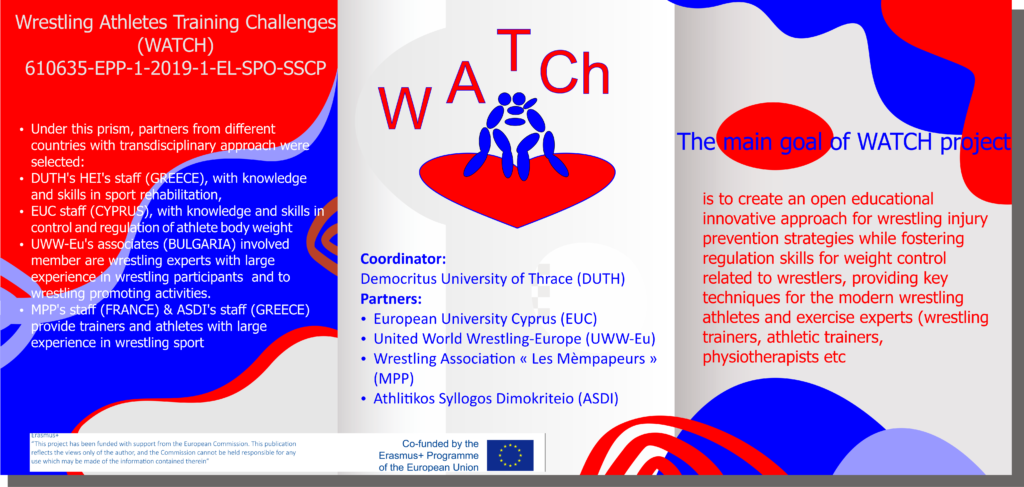
In particular, WATCH will identify the gaps in the strategies used for the prevention of musculoskeletal injuries in wrestling and recognizing that wrestling athletes and trainers operate with interplay of thoughts, physiology and actions, it will propose specific exercise drills and a concomitant knowledge cultivation of wrestling athlete body weight control contributing in this way in a safer participation to wrestling and sports.
The creation of this project was motivated by the fact that a considerable proportion of wrestling athletes in all age groups are facing with injuries and their consequences during training and competition. Wrestling is considered to be one of the most physically demanding sports in high school and college athletics. The sport of wrestling dates back to ancient times as one of the original Olympic sports supporting that is a European grassroots sport. It is popular among adolescents because participants of equal size can compete against each other. It is one of the few sports in high school where it is an advantage to be small and wiry. However, despite the documented health benefits of wrestling sport participation, wrestlers are at risk for sports-related injuries.
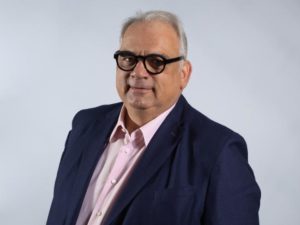
Nenad LALOVIC
President of United World Wrestling (UWW)
Member of the International Olympic Committee (IOC)
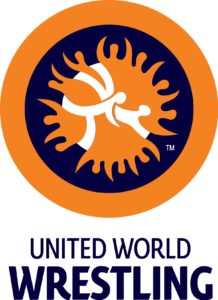
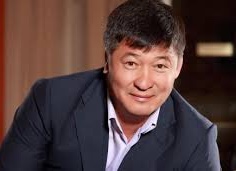
Daulet TURLYKHANOV
Bureau Member & President of the Asian Council
UWW Scientific Commission President
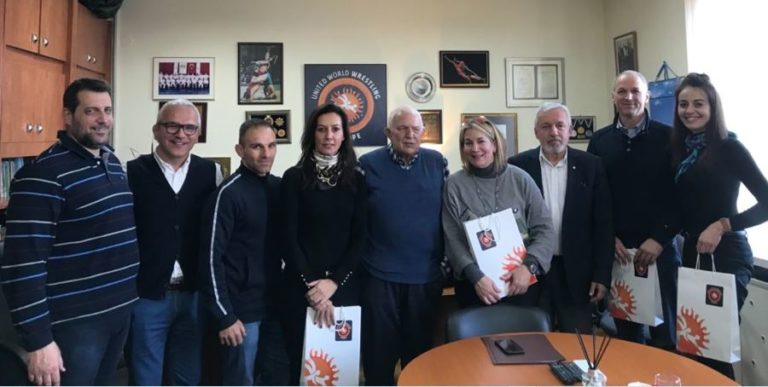
Erasmus+
“This project has been funded with support from the European Commission. This publication reflects the views only of the author, and the Commission cannot be held responsible for any use which may be made of the information contained therein.”
